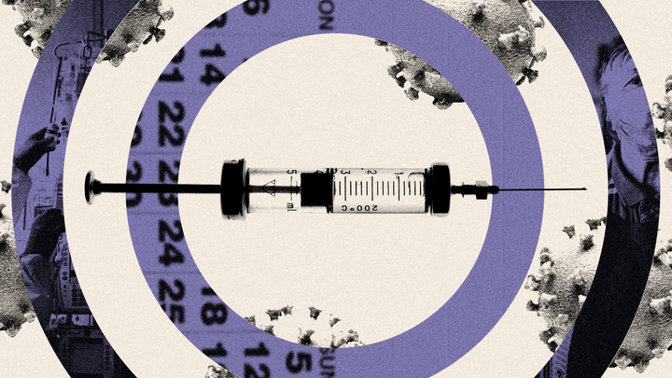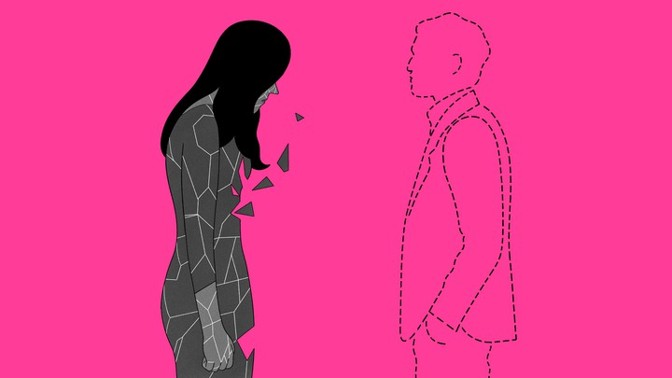

Science defeated the coronavirus, my colleague Ed Yong reports in our latest cover story
This spring, thousands of researchers paused their projects in order to study the deadly disease, COVID-izing their disciplines. And in doing so, they logged countless achievements: a better understanding of it, sharper tests, and, of course, working vaccines in record time.
But even triumphs come with an opportunity cost. Today, we're taking a moment to reflect on four ways science has not benefited from this singular focus, as explained by Ed. (His piece is worth reading in full.)
1. Halting research on other topics
Long-term studies that monitored bird migrations or the changing climate will forever have holes in their data because field research had to be canceled … Even research on other infectious diseases was back-burnered.
2. So-called epistemic trespassing
While the most qualified experts became quickly immersed in the pandemic response, others were stuck at home looking for ways to contribute … Often, they made things worse by swerving out of their scholarly lanes and plowing into unfamiliar territory.
3. An overfocus on “silver bullets”
Simple acts like wearing a mask and staying at home, which rely on people tolerating discomfort for the collective good, became society’s main defenses against the virus in the many months without effective drugs or vaccines. These are known as nonpharmaceutical interventions—a name that betrays medicine’s biological bias. For most of 2020, these were the only interventions on offer, but they were nonetheless defined in opposition to the more highly prized drugs and vaccines.
4. Widening inequalities
Women’s research hours fell by nine percentage points more than did men’s because of the pressures of COVID‑19. And when COVID‑19 created new opportunities, men grabbed them more quickly …
American scientists of color also found it harder to pivot than their white peers, because of unique challenges that sapped their time and energy.

One question, answered: The first vaccines are out in the world. So who gets them first? When can the general public expect to be vaccinated?
As our staff writer Sarah Zhang noted in her piece last week, those details are still being worked out—and it may depend on where you live:
While a CDC committee sets recommendations for how to prioritize initially scarce doses, each state ultimately decides how to allocate the vaccines it receives. A person who qualifies as an essential worker in Illinois might not in Indiana. One city could end up opening vaccinations to the general public before its neighbor. This system is meant to be local and flexible, but that will necessarily mean a patchwork of policies that could come off as unfair or inconsistent.
“It is such a complicated and large logistical challenge that a lot of things will go wrong. A lot of things will not go to plan,” says Eric Toner, a senior scholar at the Johns Hopkins Center for Health Security. “The important thing is not to get hung up on that.” Hard trade-offs are ahead, as many groups have some claim to priority but they by definition cannot all be prioritized. Toner says not to lose sight of the ultimate goal: “Let’s just keep vaccinating people.”
What to read if … you’re looking for practical advice:
What to read if … you’re processing news of Bill Barr’s departure:
The attorney general’s coming exit from the White House, announced this evening, reveals the hollowness of Trumpism, David A. Graham writes.
What to read if ... you’re still thinking about that op-ed in The Wall Street Journal:
If Jill Biden wants to embrace her Ed.D., who are we to object? Graeme Wood argues.
Tonight’s Atlantic-approved isolation activity:
Get started on your end-of-year watch list: Our critics chose 15 of the best shows from the year TV became essential.
Today’s break from the news:
“This bizarre need to feel busy, or to feel that time is structured, even when one is sprawled on the couch on a weekend afternoon—where does it come from?” Derek Thompson wonders. A new book uncovers the origin of the “Sunday scaries.”
Dear Therapist

In her latest column, Lori Gottlieb advises a reader who is heartbroken after having an affair with a married man:
I’ve started therapy, but I need to know how to stop my sadness and feelings of anger and resentment toward him. I’ve lost myself completely, and I don’t know how to pick myself back up. Any advice?
Read the rest, and Lori’s response. Every week, she answers questions from readers about their problems, big and small. Write to Lori anytime at dear.therapist@theatlantic.com.







